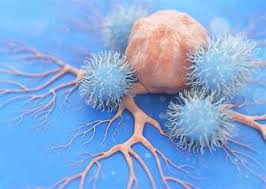31 July 2025 | Thursday | News

Akeso, Inc. (9926.HK) ("Akeso" or the "Company") announced that the first patient has been dosed in its pivotal Phase III clinical study (AK112-305/HARMONi-8A) of ivonescimab (PD-1/VEGF bispecific antibody) in combination with docetaxel for the treatment of locally advanced or metastatic non-small cell lung cancer (NSCLC) that has progressed following PD-1/L1 inhibitors and platinum-based chemotherapy.
Ivonescimab is the only bispecific immunotherapy antibody currently undergoing Phase III registration trials for IO-resistant lung cancer.
In recent years, immunotherapy has achieved significant progress in the treatment of NSCLC. PD-1/L1 inhibitors, whether used as monotherapy or in combination with platinum-based chemotherapy, have become the standard first-line treatment for advanced NSCLC in patients without driver mutations. However, despite these advances, 60%-70% of patients experience disease progression within the first year of treatment.
Currently, there are no approved standard treatment options for IO-resistant NSCLC. Docetaxel is recommended in both China's and international treatment guidelines for immunotherapy-resistant (IO-resistant) NSCLC. However, docetaxel's monotherapy efficacy in the IO-resistant NSCLC patients remains limited. Several Phase III clinical trials investigating IO-resistant lung cancer, including immunotherapy combination therapies studies and ADC therapy studies, have failed to demonstrate positive results.
Mechanistic studies suggest that PD-1 therapy can restore the immune system's anti-tumor activity, while anti-VEGF therapy alleviates VEGF-mediated immune suppression and promotes T-cell infiltration. When combined, these two therapies may produce synergistic effects. Ivonescimab simultaneously targets both PD-1 and VEGF pathways, reversing the immune-suppressive tumor microenvironment and reactivating anti-tumor immune responses. These synergistic mechanisms provide a scientific rationale for using ivonescimab to treat IO-resistant tumors. Furthermore, the positive efficacy and safety data demonstrated in a Phase II study in this indication underscore the significant therapeutic potential of ivonescimab in this difficult to treat patient population.
The ivonescimab regimen has demonstrated remarkable efficacy and excellent safety across multiple tumor types. The ongoing AK112-305/HARMONi-8A Phase III study targeting IO-resistant NSCLC is expected to offer a novel and highly effective treatment option for patients with IO-resistant NSCLC, in line Akesos ' 'Immuno-2.0' strategy.
As the world's leading PD-1/VEGF bispecific antibody, ivonescimab has achieved extensive population coverage for core indications in NSCLC and is positioned across multiple lines of treatment, with the potential to reshape the overall treatment landscape for advanced NSCLC.
© 2026 Biopharma Boardroom. All Rights Reserved.